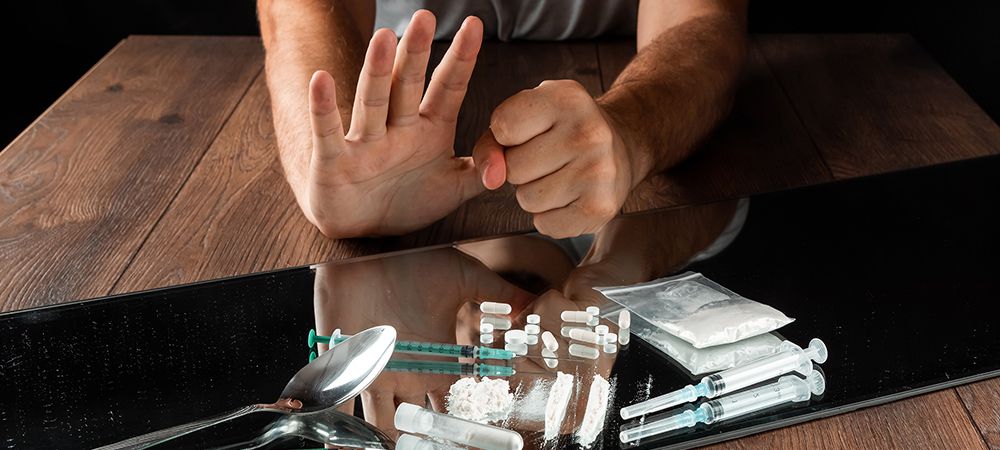The best choice for detox in Ontario is inpatient rehab. Canada is currently experiencing a marked increase in substance abuse cases. And thankfully, inpatient detox centres are pivoting to help people seeking addiction treatment.
Detoxing is the first step of treating addiction problems. Inpatient detox process is a form of treatment that happens in a residential facility. Patients will live in a residential facility getting hands-on supervision and treatment from expert addiction specialists.
This article contains information on the different stages of inpatient detox and what to expect during the process. Here’s all you need to know about inpatient detox rehab in Ontario.
Procedure for Inpatient Detox
Detoxing is an integral part of addiction recovery, and the best way to go through it is via inpatient rehab detox treatment. But, addiction recovery doesn’t start the moment you get to rehab. The recovery process from addiction consists of different actions and decisions you must’ve been taking over time.
It’s important to understand that detoxing is unique to every individual. Your detox process may not be the same with another individual.
Some people may recover faster than you or vice versa. But whatever the case may be, there are six stages you’ll likely undergo in the addiction recovery process.
Most people follow the stages of recovery in successive order. Others may even be in more than one stage at the same time. It’s also pretty normal for people to go through these stages in a backward and forward manner.
The Precontemplation Stage
In the early stages of recovering from addiction, the individual doesn’t see anything wrong with their addiction. In the pre-contemplation stage, the individual may not experience any negative consequences yet.
It’s also possible the affected individual is in denial about the dangers of their addiction problem. The person may not want to hear or listen to any advice to go for an inpatient detox program. There are four categories of people at this stage.
The Rebellious Ones
The rebellious ones are naturally stubborn because they don’t like people telling them what to do. Whenever someone advises them to seek inpatient detox rehab, they easily pick offence. The rebellious pre-contemplator may even get physical if the advisor, in this case, doesn’t stop.
The Resigned Ones
A resigned contemplator has already given up on any chance to get better or recover from addiction. Advising a resigned pre-contemplator can be very difficult as they have made up their minds that there’s no hope.
The Rationalizers

It’s difficult to advise or convince a rationalizing contemplator to quit their addiction. Rationalizing pre-contemplators are difficult to talk to because they believe they have every answer. The smartness of rationalizers makes them believe that substance usage isn’t a problem for them.
The Reluctant Ones
Unlike the rationalizing contemplators, the reluctant ones don’t even know they have an addiction problem. They don’t have the zeal to change because they don’t see a problem in the first place.
The Contemplation Stage
At this stage, irrespective of the type of pre-contemplator, the individual now recognizes their addiction problem. The contemplation stage is where the individual decides if they want treatment or not.
Most times, at this stage, the individual may desire a change but may not want to commit to it fully. The individual is now more understanding and wants to learn about the likely consequences of their addiction problem. The person will also want to know the options they have to help them quit.
But at this stage, the individual still hasn’t made up their mind by committing to a treatment plan. For some people, contemplation can last for years. But it may take some months to get over this stage or fall back to the pre-contemplation stage.
The Preparation Stage
The preparation stage indicates the success of the previous stage. Getting to this stage is a major step and the beginning of the addiction recovery process.
At the preparation stage, the affected individual is done contemplating and is fully ready to commence treatment. The catalyst for this stage can be advice from someone to quit or a life-threatening problem due to their addiction.
But most importantly, the individual is ready to commit and take action to kickstart their addiction recovery process. First, the person can proceed to see a medical professional who can evaluate their current addiction stage. Then with the help of the medical expert, they can generate a suitable treatment plan.
The Action Stage

The real change, which is the behavioural change begins at this stage. For most individuals, the action stage starts with an inpatient rehab detox program. To start seeing improvements, medical experts need to help the individual navigate through the early stage of addiction recovery.
The medical professional in charge will then administer detox treatment to combat the principal cause of the addiction problem. Good inpatient rehabs also offer group or individual therapies and guidance and counselling sessions for the patients.
These therapies or sessions will help the individual understand addiction and how it applies to them.
The Maintenance and Relapse Stage
The maintenance and relapse stage comes with a bit of back and forth when treating addiction in inpatient rehab. During the addiction treatment process, the individual will have to start adapting to an addiction-free life.
While adapting to life without addiction, many patients suffer a relapse. However, a relapse isn’t an indication of weakness or failure.
The individual can become sober again. But the doctor or medical expert in charge may need to approach treatment differently this time.
The Termination Stage
The termination stage is the final step for addiction recovery and the major reason for getting treatment. People at this stage now try to live their normal lives without the fear of going back to their addiction.
The individuals now feel more secure and confident going about their daily lives as the fear of relapse decreases.
Related Article: An Overview of Outpatient and Inpatient Detoxification
What Happens During Inpatient Detox?
Detox is usually the first step in the addiction treatment process. Detoxification is a form of substitute-medicine treatment that aims to remove or clear harmful toxins from the body. These toxins or substances accumulate in the body and have undesirable short or long-term health effects.
The process of detoxing helps the patient to stop the intake of drugs in the safest possible manner. However, abruptly stopping the use of drugs like benzodiazepines can be fatal on the individual. Hence the need for an inpatient rehab detox program.
Detoxification is a sensitive process and requires the supervision of only qualified medical professionals. In addition, if detoxification is done outside a medical facility (inpatient rehab), the individual is at risk of relapsing to a worse condition.
Asides from the risk of relapse, detoxing outside an inpatient rehab come with dangerous withdrawal symptoms, which includes:
- Headache
- Anxiety
- Shaking
- Sweating
- Insomnia
- Fatigue
- Irregular heartbeat
- Irritability
- Nausea and vomiting
So, it’s important to undergo detox in a medical facility like an inpatient rehab. It’ll reduce the challenges of withdrawal and increase your chances of recovery.
Medically- Assisted Detox Treatment
During inpatient detox, medical professionals may recommend using some medications to reduce withdrawal symptoms for some patients. However, you must note that a qualified medical professional must prescribe these medications. Some of the medications include:
Methadone
Methadone has been in existence since the 1950s. Methadone is an opioid that can prevent withdrawal symptoms when a doctor supervises its administration.
Naltrexone
Naltrexone acts as an agent that blocks opioids. To receive naltrexone, the individual must abstain from opioids for seven days. The injectable form of naltrexone is known as Vivitrol.
Suboxone
The active ingredient of suboxone is buprenorphine, and it partially activates the patient’s opioid receptor.
It’s just as effective as methadone in the detox stage. Although, suboxone has fewer risks in comparison to methadone. The medical expert may sometimes prescribe the injectable form of suboxone or buprenorphine, known as sublocade.
Length of Inpatient Detox Treatment
The duration of addiction detox treatment is different for everyone. Normally, the detox process is to last for 7-10 days. But the length of the detox process differs depending on certain factors, which includes:
- The severity of the individual’s withdrawal symptom
- The patient’s physical and mental functioning
- The level of the substance in the patient’s system
- Individual differences
Inpatient detox treatment offers all-around-the-clock medical care to manage withdrawal symptoms better. You may need to reside at the inpatient rehab for detox, after which there may be a need for you to stay for a 30-day addiction treatment plan.
Inpatient detox rehab is best for individuals with serious addiction problems. The length of inpatient detox treatment usually depends on the individual. The treatment plan for addiction may get to 60 or 90 days, depending on the recommendation of the medical professional in charge.
The patient’s body chemistry, genetic makeup, and metabolic rate help determine the start of the substance withdrawal. So basically, the detox treatment for some people may be longer than others. Therefore, it’s wise for the individual to plan for the aftermath of the detox process.
The withdrawal symptoms are majorly responsible for how long the individual may require to recover fully in the inpatient detox rehab. Therefore, the treatment program’s success begins when the individual starts functioning without substance use and withdrawal symptoms.
Is Inpatient Detox Rehab Better than Outpatient?
Both inpatient and outpatient detox rehab are effective addiction treatment facilities. But there are a few distinctive features that make each of them suitable for different situations. As a result, individuals with addiction problems may find it confusing to select a suitable treatment platform.
This section of the blog will help you choose a suitable addiction treatment platform. See explanations below.

Inpatient Detox Rehab Program
An inpatient detox rehab is also known as a residential rehab because you’ll have to reside within the rehab facilities. Inpatient rehab is effective or suitable for people with serious substance addiction problems.
Residing at the rehab facility will help you prevent the influences and temptations in your everyday life that trigger you. Also, the 24-hour care from medical experts in the facility means inpatient detox rehab has a higher success rate than outpatient rehab.
There are short and long-term inpatient addiction treatment programs. You may spend up to six months in an inpatient rehab after detox, depending on the severity of the addiction problem.
Outpatient Detox Rehab
As the name implies, outpatient rehab requires individuals to stay outside the rehab facilities. It means that you can maintain your normal daily routine while going for detox. The outpatient detox rehab is suitable mainly for individuals with mild substance addiction issues.
However, outpatient rehabs can be risky because you may not have the ability to resist triggers. This reason makes inpatient rehab a better option for detox. Although an outpatient rehab costs less, the cost of inpatient rehab is worth every single dime.
Related Article: Inpatient Vs Outpatient Treatment: Recovery Options
Final Thoughts
Inpatient rehab is a better option for detoxing. But selecting a good facility is. The amenities and consistent care in a good inpatient detox rehab facilitate the success of detox.
If you’re searching for an adequate rehab facility for inpatient detox, you can check out our comprehensive inpatient detox programs in Ontario.
Here at Medical Detox Ontario, we offer inpatient care under the supervision of certified addiction treatment specialists in world-class facilities. Get in touch with us today!

